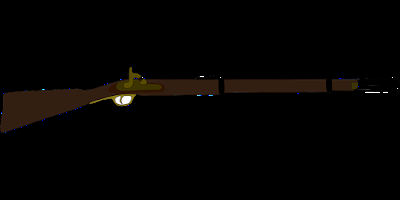
If you've read or are currently reading my novels, you no doubt have picked up on the fact that I love a story with some action. And by some, I mean **A WHOLE LOT** and maybe even a little extra. I'm always down for an adventure story, and it may surprise many of my readers to know that the majority of the Collapse Series itself (the first 10 books in Cassidy's story), was heavily inspired by the actual historical battles and events of the Revolutionary War. In fact, a great deal of the tactics used by Cassidy's militia group, the Freedom Fighters, were literally the exact same strategies used by the rough and ready patriots of yesteryear (you may remember the 'circle of fire' from State of Chaos, for example). I absolutely had a blast drawing parallels between the Revolution of 1776 and the modern battle that Cassidy and crew engaged in throughout the Collapse Series stories. Even now, while I am working on Cassidy's final installment, I am drawing heavy inspiration from that time period, which has always been a personal favorite of mine.
Going into Christmas this year, I can't help but think of some interesting, real-life parallels between the 18th century and today. For example, did you know that while leading the Revolutionary Army during the earliest years of the war, George Washington had to deal with a pandemic of smallpox that raged through the ranks of his men? The outbreaks were deadly, and the epidemic itself lasted from 1775 to 1782 (MtVernon.Org). Did you know that Washington even had his troops inoculated against it - at that time, the idea was relatively new, so his response to the threat of the disease was very modern for his era. Washington himself was immune to the disease, as he had suffered from a bout of smallpox in his youth that left his face permanently scarred.
I think we can all identify with the kind of apprehension that Washington and his men must have faced when it came to the threat of such a sickness (albeit smallpox, statistically speaking, would have posed a much deadlier threat than COVID-19 ever thought about being today in the USA, due to a variety of reasons). I find it fascinating, however, that even in the face of a pandemic, Washington and his men found a way to keep fighting, dealing with the threat at hand with common sense, and moving forward.
Perhaps the most interesting Christmas story in American history is the tale of Washington crossing the Delaware River, which occurred on Christmas Day (25-26). Basically, the Continental Army was staked out in the middle of a frozen forest, threadbare, morale shaken (you've heard the stories, no doubt, of soldiers who had worn down their boots so badly that their feet froze, and you could follow the footprints of blood through the snow), and just about hopeless. Across the river, which was blocked with ice and snow, lay the Hessian garrison that contained about 1400 troops. Keep in mind that Washington's army was just one contingent of multiple forces moving against the British, as there were many other Revolutionary troops snaking their way through the frozen wilderness. Washington's original plan was to take a force of 3 different regiments across the river, but as we know, only one made it across (check out Mt. Vernon.Org for more information and details about this).

Even more interesting, the fortress of enemy soldiers across the river were aware that Washington and his troops were prepared to move against them (due to a spy that had betrayed Washington), yet they laughed it off, assuming that nobody would 1) be crazy enough to cross the ice-crusted Delaware River in the dead of winter and 2) that Washington's men didn't have a prayer in beating the 1400 troops at the fort.
Consider this, as well: as Washington and his men were crossing the frozen river, a desolating, freezing storm blew in, carrying with it absolutely miserable sheets of sleet and ice, blinding the troops and plunging the entire force into mortal danger. And yet, they pushed on (although Washington had his doubts). What is so fascinating is that this storm, which was deadly in every way, actually allowed Washington and his men to surprise the Hessian troops - hidden in the blur of the storming chaos, they were essentially invisible. When Washington's forces successfully touched down on the other side of the river, the fortress was effectively taken. Most of the enemy troops were captured, and news of Washington's Christmas surprise victory spread far and wide, significantly boosting morale (and enlistment). It is also important to note that the blinding storm struck at such a moment as to hide the American forces from the enemy. Throughout the Revolutionary War, there were many instances of natural phenomenon that shielded the Continental Army from enemy capture or destruction. Coincidence, you say? Or Divine Providence? In the book, The American Miracle: Divine Providence in the Rise of the Republic, by historian Michael Medved, he writes this: "Since the days of the Pilgrims, leaders of the new society that arose in the New World have embraced the core concept of a divinely determined destiny. For nearly four hundred years, Americans nourished the notion that God maintained an intimate, protective connection to their singular nation. Only recently, with the emphasis on guilt over gratitude in our teaching of history, has the public grown uncomfortable with the idea that fate favors American endeavors. Today, the merest suggestion that the Almighty plays favorites among the nations of the world strikes contemporary sensibilities as offensive, outrageous, or at least controversial."
Since when, I ask, does it become offensive to attribute a blessing to the hand of God? Since when does it become controversial to acknowledge that every good and perfect thing is from above? I digress. George Washington himself said this when considering the intervention of Divine Providence in making decisions or moving forward as a country: "As the All-Wise Disposer of events has hitherto watched over my steps, I trust, that, in the important one I may soon be called upon to take, he will mark the course so plainly, that I cannot mistake the way." If you are interested in learning about how the strong values of the church influenced the life and decisions of George Washington, I strongly recommend reading George Washington's Sacred Fire, by Peter Lillback. It is an interesting and enlightening book, filled with incredible information and facts that will astonish you. It was one of the first books that got me hooked on studying American history on a deeper level.
Comprehending and learning about the personal lives of the men and women who pledged their lives, their fortunes, and their sacred honor to further the cause of liberty helped me to understand the impact and importance of America in terms of historical significance. You cannot debate history until you actually are educated about history. One must do their own research and reading, since we live in an age of Orwellian dictation, in which history is rewritten daily from the iPhones of millennial dramatists who have received their education from the bowels of social-media campaigns that rely on nothing more than emotional appeal - when in actuality, all anyone needs is truth and historical fact. One can hardly turn to information doled out from megalithic corporations like Facebook or Instagram and expect that information to be accurate or even remotely valid. The ability to think critically and use those critical thinking skills to research facts and historical records to reach an informed conclusion is something that seems to be going by the wayside.
And, of course, this leads me to the entire point of this article, which is firstly, a reflection on an inspiring Christmas story from the Revolutionary War. Secondly, this examination of critical thinking, the ability to identify truth, patterns, correlation and causation, is the subject of my upcoming non-fiction book, which will hopefully be released in 2021. I will be discussing theological information in the context of how it ties into American history specifically - and how all of this, a struggle for truth, a battle for fact over fiction, the contrast of foundation over feelings, is the great war of our time. It will be a compilation of a great conviction that has been rising in my heart for many years, an answer to the perplexing questions of my generation, a generation that wonders the following:
What is man's purpose?
Why are we here?
Why do bad things happen?
What makes America exceptional?
Why is the doctrine of Marx and Lenin controversial?
Why is it important for the church to be involved in politics?
Who controls the events of the world?
What is the definition of justice and truth?
Where does morality come from?
How has the world been shaped by nefarious forces for the past millennia?
What can we do to open our eyes and think freely?
Why is it important to face facts over feelings?
I will be covering at least 25 different topics in the book, ranging from the origins of sin to the globalist agenda that has been threatening the world for centuries. I will discuss history, both in the Biblical and the secular context. It will be a discussion of morality, an examination of world history, and the resounding hope of Christ's Second Coming.
I will soon be releasing the title and official synopsis, but for now, this is my project that I will be continuing to hammer away at while I am straightening out the nuts and bolts of both of my fiction projects (Expedition 99 and Cassidy's finale novel). This book will be available as a trade paperback, and I plan to distribute it to libraries, churches, and bookstores (with a focus on California).
I have always written fun adventure novels for all ages, and this is definitely a little different - and that's okay! Non-fiction may not be your thing, and it doesn't have to be. But, if you have questions about the tribulations of this world, and you think that there might be some interesting information in this book, I cannot wait to share it with you come 2021! Meanwhile, keep checking back here for updates. Have a very Merry Christmas, and a happy new year!

A Christmas Surprise: Washington, Critical Thinking, and My Next Non-Fiction Project

